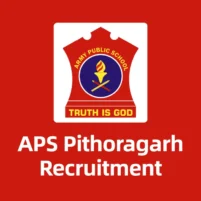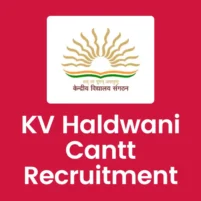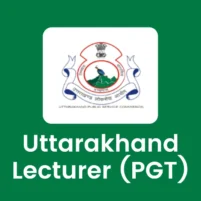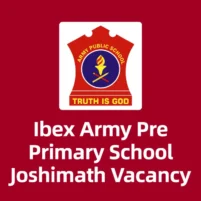Kendriya Vidyalaya Sangathan is going to conduct recruitment exam for the selection of 3365 Posts of PRT (Primary Teacher) according the new Scheme (Pattern). This year KVS PRT Syllabus (Exam Pattern) is changed along with Qualification, Check and Download PDF for PRT/ Music/ Special Educator Posts. For a better preparation candidates need to know about the latest KVS PRT Syllabus and Exam Pattern, which is being provided in detail below.
Kendriya Vidyalaya PRT Syllabus PDF & Pattern 2025-2026
KVS PRT Selection process will consist of Tier-1 (300 Marks), Tier-2 (100 Marks) and Interview (100 Marks). PRT Tier-1 exam will be Preliminary (Qualifying) and will consist of total 100 OMR (Objective type) multiple choice questions (03 Mark each). While, PRT Tier-2 will be Subject Knowledge Examination (combination of Pen-Paper and OMR Based) and will consist of 60 Objective Questions (1 Mark each) plus 10 Descriptive Questions (4 Marks each).
Tier-1 Exam: 100 Objective Questions of total 300 Marks (Qualifying).
Tier-2 Exam: 60 Objective Questions (60 Marks) plus 10 Descriptive Questions (40 Marks).
Interview: 100 Marks.
For online application form, vacancy details, salary, educational qualification, notification and other details about the KVS PRT Recruitment, check the information on the link below.
Tier-1 will be screening test and on the basis of performance in Tier-1 candidates will be shortlisted for Tier-2 in the ratio of 1:10 (relative to notified vacancies). For selection in the post of KVS PRT/ Music/ Special Educator, final merit lists will be prepared by giving weightage of 85% and 15% to the marks obtained by candidates in Tier-2 and Interview respectively.
You can check PRT Exam City/ Centre allotted to you 15 days before the examination on the website of CBSE and KVS. The PRT Admit Card with Centre details and Schedule of examination for Tier-1/ Tier-2/ Interview will be available 02 days before examination on the website of CBSE and KVS. The e-Admit cards can be downloaded by logging in to the application portal.
See also: KVS Exam Dates PGT TGT PRT Admit Card Download 2025-2026
KVS PRT Examination Scheme
Tier-1 Examination (Online) – As per the latest KVS PRT Pattern (Scheme), the Tier-1 exam question paper consists of 06 Parts i.e. Part-1 (General Reasoning), Part-2 (Numeric Ability), Part-3 (Basic Computer Literacy), Part-4 (General Knowledge), Part-5 (Language Competency Test for English) and Part-6 (Language Competency Test for One other Modern Indian Languages) as given below:
- Part I (General Reasoning): 20 Questions (60 Marks)
- Part II (Numeric Ability): 20 Questions (60 Marks)
- Part III (Basic Computer Literacy): 20 Questions (60 Marks)
- Part IV (General Knowledge): 20 Questions (60 Marks)
- Part V (Language Competency Test for English): 10 Questions (30 Marks)
- Part VI (Language Competency Test for One other Modern Indian Languages): 10 Questions (30 Marks)
PRT Tier-1 will be Preliminary (Qualifying) Examination in OMR (Objective) Mode. The test will be of 02 Hours duration without any time limit for each part of the test. Each question will be of 03 Marks and there will be negative marking of 01 Mark for every wrong answer given by candidates. The Tier-1 exam will be of Senior Secondary level.
Tier-2 Examination – Candidates declared qualified and shortlisted in Tier-1 will be called for Tier-2 Examination. There will be separate Tier-2 for the posts of PRT, PRT (Music) and Special Educator (PRT) that will be bilingual i.e. in Hindi & English. The test will be of maximum 100 Marks consisting 60 Objective Questions (1 Mark each) and 10 Descriptive Questions (4 Marks each).
- Objective Type: 60 Questions (60 Marks)
- Descriptive Type: 10 Questions (40 Marks)
In Tier-2, each objective type question will be of 01 mark and there will be negative marking of 0.25 Marks for each wrong answer given by candidates. The test will be of 2½ Hours duration without any time limit for each part of the test.
Based on the performance in Tier-2 examination and also keeping in view the number of vacancies, candidates will be shortlisted for Interview in the ratio of 1:3 (relative to notified vacancies). Final merit list (result) will be prepared on the basis of performance of candidates in Tier-2 and Interview taken together. The weightage of Tier-2 Exam and Interview will be 85:15.
KVS PRT Syllabus (Detailed)
The latest and detailed syllabus for KVS PRT, PRT (Music) and Special Educator (PRT) Tier-2 Exam is as follows:
Primary Teacher (PRT)
Comprehension – Three or four unseen passages from different genres (prose, poetry, drama, articles, editorials, scientific, and literary extracts). Questions will test comprehension, inference, vocabulary, tone, rhetorical devices, and logical sequencing.
Writing Ability – Functional Writing: Formal and Informal Letters- Business letters, job applications, letters to editors, complaints, and personal letters. Report Writing: Factual description of events, newspaper reports, and analytical reports. Notices, Circulars, and Press Releases.
Grammar and Usage – Parts of Speech: Nouns, Pronouns, Verbs, Adverbs, Adjectives, Prepositions, Conjunctions. Sentence Structure: Types of sentences, subject-verb agreement, parallelism, and sentence connectors. Tenses and Their Usage: Active-passive voice, sequence of tenses, and reported speech. Clauses: Noun, adjective, and adverb clauses.
Common Errors: Articles, prepositions, modifiers, redundancy, and word order. Editing and Proofreading: Error detection, sentence correction, and transformation.
1- हिन्दी साहित्य का इतिहास। 2-गद्य साहित्य की विधाए कहानी, निबन्ध, जीवनी, आत्मकथा, रिपोर्ट। 3- अपठित गद्यांश, पद्यांश। 4- प्रसिद्ध मुहावरे और लोकोक्तियाँ।
व्याकरणः संज्ञा, विशेषण, वचन और व्यावहारिक प्रयोग, गणित के पाठ्यक्रम, पाठ्यक्रम के अनुरूप हिन्दी में संख्याएँ, संयुक्त अक्षर की पहचान, पर्याय और विलोम (स्तरानुकूल), सर्वनाम और लिंग की पहचान, विशेषण का संज्ञा के साथ सुसंगत प्रयोग, वचन वचन का प्रयोग, क्रिया, काल और कारक चिन्हों की पहचान, शब्दों के संदर्भ में लिंग का प्रयोग, संधि, संधि विच्छेद, पर्यायवाची शब्द।
Geometry: Shapes & Spatial Understanding, Solids around us.
Numbers: Developing a Sense of Numbers, Counting and Operations of Numbers, Addition and Subtraction, Multiplication, Division, Mental Arithmetic, Fractional Numbers, Money, Measurement and units, Length, Weight, Capacity (Volume), Time, Patterns, LCM, HCF, Mensuration, Area & Volume, Perimeter, Distance time & Speed, Profit & Loss, Percentage & Raito, Average, Lines and angles, Circle, Triangles, Stastics/ Data Handeling.
Family, Friends and Communities, Natural Resources, Understanding the Environment and Environmental Impact, Life Around Us, Gifts of Nature. Food, Shelter, Water, Travel, Things we make and do. Physiological processes in Plants, Animals and Human Being. Weather, Climate, Landforms of India, Cultural Heritage and Traditions, Governance and Democracy, Constitution of India, Indus valley Civilization, Gupta Era, Resources of India, Magnets, Materials, Methods of separation.
Visual Art: Objects and Still life art, Colours, Paper Crafts, Seals and Prints, Local art forms of state.
Yoga, Physical and motor fitness, Diet and Health, First Aid and Safety, Ethics in Sports, Fundamental skill of games- Badminton, Football, Kabaddi, Handball, Kho-Kho, cricket, Hockey, Local games of various states.
PRT (Music)
Science of Music and Studies of Shruties:
Vibration and frequency; pitch and its relation and vibrator, Vocal and Instrumental ranges of sound; Amplitude, Timber, Qualities and musical and unmusical overtones (Swayambhu-Swar); consonance and Dissonance; Main types of chords; Absorption, Echo; Reverberation and Resonance of sound, concept of Shruti (different Opinions on it). Placement of suddha and Vikrit Swars on different shruties according to Lochan, Ahobal, Pundarik, Ramamatya, Somnath etc. Comparative study of Vyankat-Mukhi’s 72 meals, Bhatkhade’s Ten That’s and Modern thirty-two That’s.
Study of Ragas and Tals
Critical, detailed and comparative study of the following Ragas: SUDHAKALYAN, DESHKAR, KAMOD, CHHAYANAT, GOUDSARANG, JAIJAIWANTI, RAMKALI, POORIYA, MARWA, SOHANI AND SHANKARA, Illustrations of Nyas, Alpatva, Bahutva, Avirbhava and Tirobhava in the above Ragas by means of notes.
Knowledge of the following Tals with different types of Layakaries and writing of the Tals in Dugun, Tigun, Chougun and Ada: Trital, Ektal, Rupak, Teevra, Sooltal, Jhoomra, Dhamar and Jat tal.
Writing the songs in notation in the above ragas with Alaps. Tans, Boltans in Khayals and Dugun, Tigun etc., in dhruvapad and Dhamar. Identification of Ragas from given notes.
Instrumental Music
Science of Music and Studies of Shruties:
Vibration and frequency, pitch and its relation with vibrator Vocal and Instrumental ranges of sound. Amplitude, Timber, qualities of musical, unmusical overtones (Swaymbhu-Swar) consonance and Dissonance. Main types of chords, Absorption, Echo, Reverberation and resonance of sound, concept of shruti (different opinions on it) placement of sudh and vikrit swara according to lochan, Ahobal, Pundarik Rammamatya, somnath etc. Comparative study of Swaras of Northern saptak, critical study of Vyankatmukhu’s 72 Melas. Bhatkhande’s Ten That’s and Modern thirty two that’s.
Study of Ragas and Tals
Critical, detailed and comparative study of the following Ragas: SUDHAKALYAN, DESHKAR, KAMOD, CHHAYANT, GOUDSARANG, JAIJAIWANTI, RAMKALI, POORIYA, MARWA, SOHANI AND SHANKARA.
Illustrations of Nyas, Aplatva, Bahutva, Tirobhav and Avirbhava in the above Ragas by means of notes. Knowledge of the following Tals with different types of Layakaries and writing of the Tals in Dugun, Tigun, Chougun and Ada: Trital Jhaptal, Choutal, Keharwa, Dadra, Tilwada, Rupak, Teevra, sool- Tal, Dhamar and jat-Tal.
Writing the Gats in notation in the above ragas with Alaps, Todas, Jhalas, Identification of Ragas from the given notes.
Candidates offering percussion Instruments must have critical details and comparative study of the following Tals: TEENTAL, JHAPTAL, RUPAK, CHOUTAL, SOOLTAL, TEEVRA, TILWADA, DADRA, KAHARWA, PANJABI, JATTAL.
They should also know the different types of Laykaries, Tukaras, paranas, Peshkara, Quada, Avartan, Bant, Kisim, Paita, Rela, Laggi, Ladi, etc. where applicable in the abovementioned talas, writing in notation of all the matter in above talas and identified- for given Bols.
Vocal Music
Notation system, scales and study of Bio-graphics of Musicians:
Notation system of Bhatkhande and vishnudigambar and western Music, writing of simple songs in these notations. Western Note, various types of intervals of notes. Time signature, different Musical scales, Dia-tonic scale, comparative study of scales of Bhatkhande and western Music. Harmony and Melody, placement of notes on veena according to Pt. Srinivas, comparative study of Northern and Southern Tal paddhaties, contribution of various scholars and musicians to the Indian Music.
Biographies and Bhatkhande, Vishnudigamber, Tansen, Ameer Khusroo, Faiyyaz Khan, Pt.Ravi Shankar, Pt.Ram Sahay, Ahmadjan Thirakwa, Kudau Singh, Nana Sahib panse.
Study of Musical Styles and Ragas
Geet, Gandharva, Gan, Deshi Sangeet, Sthaya, Mukhachalan, akshiptika, Nibadha and Anibadh Gan, Raglakshan, Ragalap, Alapti swasthan Niyam, prachalit Alap, Tan; Meend, Gamar, Raku
Critical detail and comparative study of the following Ragas with illustration of Nyas, Alapatva, Bahutva, Tirobhav and Avirbhav in them: Lalit, Darbari, Adana, Mia-Malhar, Goudmalhar, Bahar, Todi, Multani, Deshi, Jogiya and Vibhas, Bhairav, Yaman.
Knowledge of the followings Tals with different types of Layakaries and writing of the Talas in DUgun, Tigun, Chougun and Ada: Trital, Ektaal, Jhaptal, Choutal, Kaharwa, Dadra, Tilwada, Rupak, teevra, Sooltal, Jhoomra, Dhamar and Jattal and pancham Sawari, Bhajani.
Comparative and details study with the descriptions of different styles of Indian Music viz. Dhrupad, Dhamar, Khayal, Thumri, Tappa, Chaturang, Taranas, Trivat, etc. and their evolution writing of notation of songs in the above Ragas with alaps, Tans Boltans etc. and with different Layakaries in Dhruvapad and Dhamar, Identification of ragas from given notes.
Instrumental Music
Notation system of Bhatkhande, Vishnudigamber and western Music. Writing of simple gats in these notations. Western notes. Various types of intervals of notes. Time signature, different Musical scales Dia-tonic scale, pythagorain scale, Tempered scale, Major scale, Minor scale etc. Comparative study of scales of Bhatkhande and Western Music. Harmony and Melody, placement of notes on Veena according to Pt. Srinivas.
Comparative study of Northern and southern Tal paddhaties contribution of various scholars and Musicians to the Indian Music.
Biographies of Bhatkhande; Vishnudigamber, Tansen, Ameer Khusro Faiyaaz Khan, Onkarnath Thakur, Allauddin Khan, Pt. Ravishankar, Pt. Ram Sahai, Ahmad Jan Thirakwas, Kudau Singh, Nana Saheb Panse, Pt. Shiv Kumar Sharma, Pt. Debu Chaudhary.
Study of Styles, Baj, Ragas and Tals
Geet, Gandharv, Gan, Deshi Sangeet, Sthaya Mukhchalan, Akshiptika Nibadha and Anibadha gan, Raglakshan, Raga-Alap, Rupakalap, Alpati Swasthan-Niyam, Prachalit Alap and Tan, Zamzama, Meend, Sootghaseet, Jor Alap, Toda, Jhala
Critical detailed comparative study of the following Ragas with illustrations of nyas, Alpatva, Bahutva, Tirobhava and Avirbhav in them: Vibhas, Lalit, Darbari Kanhda, Adana, Miyan Malhar, Goud Malhar, Bahar, Todi, Multani, Deshi and Jogiya.
Identification of Raga from given notes. Knowledge of following tals: Ada Chartal, Ektal, Deepchandi, Dhamar, Farodast, Pancha, Sawari, Kumbh, Sikhar.
Candidates offering percussion instruments must have critical detailes and comparative study of the following tals: Adachartal, Ektal, Pancham Sawari, Farodast, Dhamar, Kumbh, Shikhar, Matt Tal, Dhumali, Deepachandi, Addha tal.
Knowledge of – Tukras, paranas, Tihai, Kayadas, Pattas, Relas, Peshkaras, Mukharas, Tipallis, chaupalli, Chakkardar bols, Farmaishi, Paranas, Lom-Bilom, Charbagh, Stuti Ke Bol, Jhulna ke bol. Dhamar and Bedamdar tihais in the above mentioned tals.
Recognition of tals by given bols, writing of all the matters in notations; Knowledge of Baithaks, styles of playing and Gharanas. Ability to writ tals in different layakaries knowledge of different types of Musical Instruments and their system of classification.
Vocal Music
History of Music and classification of Rags and Tals:
Short History of Music of Ancient periods up to 13th century A.D. with classification of Rags and Tals. Evolution of jatis Ragas, short history of Music of Medieval and Modern periods, prabandh. Revival of Indian Classical Music, comparison of the Hindustani and Karnataka Music systems. Impact of Modern Science in the development and propagation of Music.
Study of Musical Styles and Ragas
Critical, detailed and comparative study of the following Ragas with illustrations of Nyas, Alpatva, Bahutva, Avirbhava and tirobhav: Shree, Pooria-Dhanashree, Basant, Paraj, Hindol, Chandrakauns, Suddhasarang, Madhuwanti, Bageswari, Jaunpuri, Malgunji.
Critical study of different styles of Music of North and South, various Gharanas of Music, Gram, Moorchana, various kinds of Gamak, writing of notation of songs. Knowledge of the following Tals with different types Layakaries: Ada- Choutal, Brahma, Lakshmi, Rudra, Shikhar, Pancham Sawari, sulfokta.
Instrumental Music
History of Music and Classification of Ragas and Tals:
Short history of Music of ancient period up to 13th century A.D. with particular reference to Natyasashtra, Brihaddesi, Sangeet Ratnakar. Classification of Ragas and Tals. Evolution of jatis, Ragas. Short History of Music in Medieval period. Revival of Indian classical Music. Comparison of the Hindustani and Karnataka Music system.
Impact of Modern science in the development and propagation of Music. Critical, comparative and detailed study of Musical styles and the following Ragas with illustration of Nyas, Apatva, Bahutva, Avirbhav and Tirobhav: Shree, Pooria – Dhanashree, Basant, Paraj, Hindol, Chandrakauns, Suddh Sarang, Madhuwanti, Bageshree, Jaunpuri, Malgunji.
Critical study of the different styles of Music of North and South. Various Gharanas of Music, Gram, Moorchana, various kinds of Gamaks, Writing of Notation of gats; Knowledge of the following Tals with different types of layakaries and writing of Tals in Dugun, Tigun, Chougun, Ada. And kuad, and Biyad.
Basant, Rudra, Laxmi, Gajjjhampa, Pashto, Brahma. Candidates offering percussion instruments should also know the various kinds of baj and styles of Table and pakhawaj and should also know peskhkaras, Paran, Tihais, Tukaras, Kishime, Kyadas, Paltas, Relas, Mukhras, Tripalli, Choupallies, Chakkardar, Bols, Farmaishi paran, Kamali paran, Lom-Bilom, Charbagh, Stuti ke bole, Jhulan ke bole, Jababi Paran, Nayahakka, Damdar and Bedam ki tihal where applicable in the following Talas, along with their critical, detailed and comparative study:
Rudra, Badi swari, Jattal, Basant, Laxmi, Gaj Jhampa, Brahma Tal, Asth Mangal, Ganesh Tal, Mani Tal, Pashto.
Various kinds of chands in the Tals where applicable and writing of different layakaries, Dugun, Tigun, Chougun, Ada, Kaud and Biyad.
Special Educator (PRT)
Section A (Compulsory)
Understanding Disability – Historical perspectives, Concept, Categories, Courses, Prevention, Cross Disability Approach; Definition, Causes and Prevention, Types, Educational Implication & Management of various disabilities & sensory, developmental & other; Early Identification & Intervention.
Concept, Models, Cross Disability, services, screening & assessments, Role of parents, Community; Human Resource in Disability sector, need and current status, International conventions & policies, Role of National Institutes.
Growth & Development – Definition, meaning, principles & factors affecting development, Domains of development, Developmental milestones; Ages & stages of development (Birth to childhood) Prenatal to childhood; Psychology & Learning, relevance, basic principles, learning styles, factors affecting learning.
Psychological processes & their implications for children with different disabilities attention, Perception, Memory, Intelligence & Motivation; Classroom Management; Stimulating learning environment, common behavior in children including children having special needs & management in inclusive classroom.
Education in the Emerging Indian Society – Nature and agencies of Education: Meaning, definition and aims of education; Education in the 21st century in India; Formal, Informal and Non-Formal education; Functions and modes of education Regular, Open, Distance & Online, Blended learning, Mainstream, Inclusive and Special School, Home- based education; Role of Government and Non-Govt agencies of education.
Philosophy and Educational Foundations in India: Different Educational Philosophies, National and International Educational Philosophers- Gandhi, Aurobindo, Rabindra Nath Tagore, Vivekanand, John Dewey, Locke, Piaget, Rousseau, Maria Montessori; Indian constitutional and education: Directive Principles, Fundamental Rights and Duties, Constitutional Provisions on Education.
Acts and Provisions: RTE Act 2009 and Amendments; Educational provisions enshrined in RPWD Act, 2016; Education Commissions since Independence and National Education Policy 1986, Plan of Action 1992 and National Education Policy 2020.
Inclusive Education – Diversity & Inclusivity: Meaning & Concept, Disability as a human diversity, Strength of diversity for inclusivity; Concept & Meaning of Inclusive Education, Principles of inclusion, Framework, Acts, Policy provisions for inclusive education; Creating supports for inclusive education: Early identification & intervention for inclusion, Foundational literacy, Empowering families, Sensitizing stakeholders, Teacher preparation.
Curricular strategies for inclusive Education: Curricular challenges, Need for curricular adaptations; Adaptations, accommodations & modifications; Differentiated instructions & Universal design of learning; Collaborations for inclusive education: Special schools & inclusive schools, special educators & general teachers, voluntary organizations and Govt. agencies.
Section B (Optional)
Note: Select any Disability Specialization: IDD/HI/VI/MD.
Characteristics of Children with disability (As per disability area selected) – Concept, definition, causes, types, prevention; Anatomical, physiological or psychological limitations and characteristics related to area of disability; Psychosocial and educational implications of disability; Early identification, screening and assessment; Learning characteristics and needs; Educational and rehabilitation perspective.
Education, Curriculum Development and Adaptation (As per disability area selected) – Assessing children with disabilities and their learning needs; Approaches to curriculum development, adaptation, role of assistive technology and ICT, curricular transaction, aids and adaptation; Teaching and learning strategies, inclusive teaching strategies; Addressing needs of students with additional disability.
Disability Specific Interventions (As per disability area selected) – Planning individual intervention/learning plans; Disability specific interventions to manage their disability specific limitation; Preparation, disability specific learning resources, managing resource room; Therapeutic intervention, recreation; Promoting role of family and community and managing the issues to facilitate learning and inclusion.
Teaching of Various Subjects (As per the disability area selected) – Development of literacy/ foundational academic skills, development of communication, language, social, recreational, self-care and independent living skills: methods and strategies for learning and teaching; Development of reading, writing and computational (arithmetic) skills to students with disabilities: methods and strategies for learning, teaching and assessment.
Teaching of language to students with disabilities: methods and strategies for learning, teaching and assessment; Teaching of EVS to students with disabilities: methods and strategies for learning, teaching and assessment; Teaching of Mathematics to students with disabilities: methods and strategies for learning, teaching and assessment; Teaching of co-scholastic/co-curricular, recreation and sports to students with disabilities: methods and strategies for learning, teaching and assessment.
You can download KVS Primary Teacher Syllabus for PRT, PRT (Music) and Special Educator (PRT) Posts in PDF format provided by Kendriya Vidyalaya Sangathan below.
See also: KVS PGT Syllabus All Subjects Exam (1465 Vacancies)
See also: KVS TGT Syllabus All Subjects Exam (2794 Vacancies)
Special Educator (PRT) Syllabus
Search for any information available on this site with the help of the search box above. You may visit later for any latest updates related to KVS PRT Syllabus, Primary Teacher Exam Scheme, Pattern etc.



